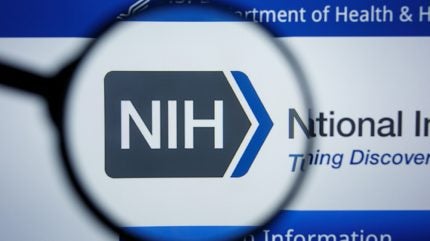
A five drug combination drug therapy trial has shown substantial tumour shrinking in more than half of patients, with some tumours disappearing completely, in patients with relapsed or refractory (R/R) diffuse large B-cell lymphoma (DLBCL)
DLBCL is recognised as the most common lymphoma, accounting for up to 30% of all non-Hodgkin lymphoma cases.

Discover B2B Marketing That Performs
Combine business intelligence and editorial excellence to reach engaged professionals across 36 leading media platforms.
The National Institute of Health (NIH) ran a single-centred Phase Ib/II study (NCT03223610) of 50 patients at NIH’s National Cancer Institute (NCI) used a combination of AbbVie’s Venclexta (venetoclax), AbbVie’s Imbruvica (ibrutinib), prednisone, Roche’s Gaziva (Obinutuzumab), and BMS’s Revlimid (lenalidomide), named ViPOR.
The researchers selected the five drugs after conducting pre-clinical laboratory studies analysing which targeted drugs could best be combined to kill DLBCL cells.
The Phase Ib portion of the trial was a dose identifying study for Venclexta. The Phase II portion used the pre-determined Venclexta dose with fixed doses of the other four drugs.
At a two-year follow-up point, the treatment had shrank tumours substantially in 54% of evaluable patients, with complete response (CR) in 38% of patients.

US Tariffs are shifting - will you react or anticipate?
Don’t let policy changes catch you off guard. Stay proactive with real-time data and expert analysis.
By GlobalDataThe trial also reported 36% overall survival (OS) and 34% progression-free survival (PFS). In addition, circulating tumour DNA was undetectable in 33% of patients.
Full findings of the study have been published in the New England Journal of Medicine.
“DLBCL is one of the most genetically heterogeneous forms of cancer, and as a result we don’t yet have the ability to identify exactly which combination of drugs would be most effective for any given patient,” said Dr. Christopher Melani of NCI’s Center for Cancer Research and co-lead on the study.
“By putting five drugs together, we believe that there will be some drug combination—either two, three, or more drugs—that will be particularly effective against that patient’s tumour.”
Elsewhere in lymphoma, Roche recently reported findings from its Phase III STARGLO (NCT04408638) trial, finding that Columvi (glofitamab), in combination with GemOx (gemcitabine and oxaliplatin), significantly extended survival in patients with R/R DLBCL.
In March 2024, GenFleet Therapeutics signed a clinical trial collaboration and supply agreement with BeiGene Switzerland for the enactment of a Phase Ib/II clinical trial of GFH009 and BRUKINSA (zanubrutinib) to treat DLBCL.





